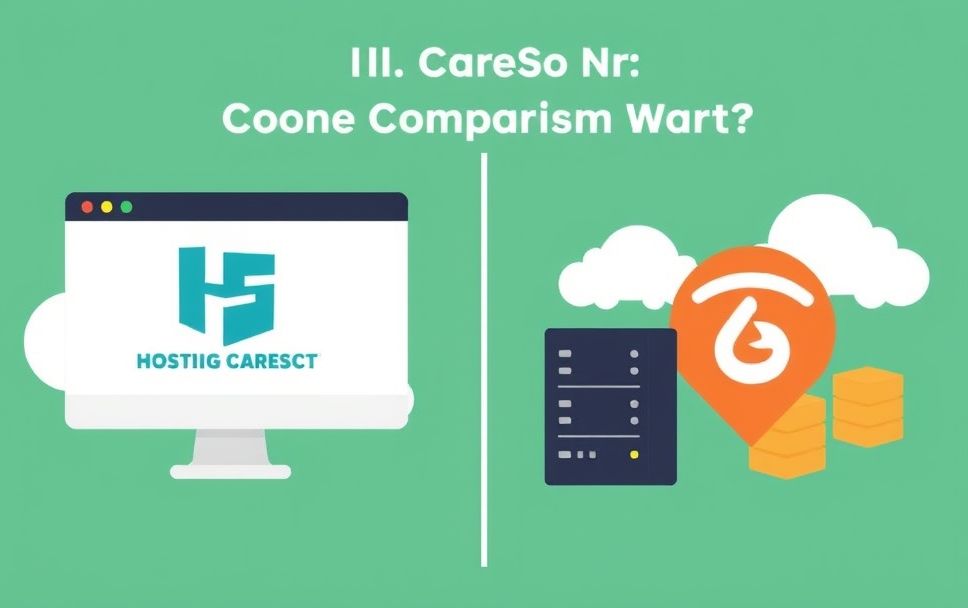What is Hosting Comparison?
The term Hosting Comparison refers to the process of evaluating different web hosting services based on various criteria such as performance, pricing, features, and customer support. In a digital landscape where having a reliable hosting service is crucial for the success of websites and applications, understanding how to compare hosting options can significantly impact a business’s online presence.
Importance of Hosting Comparison
Choosing the right web hosting service is a fundamental step for developers and administrators alike. The hosting environment affects website speed, uptime, security, and even SEO rankings. A thorough hosting comparison helps individuals and businesses select a service that aligns with their specific needs, ultimately enhancing user experience and site performance.
Key Factors to Consider in Hosting Comparison
- Types of Hosting: Shared, VPS, Dedicated, and Cloud hosting each serve different needs.
- Performance Metrics: Uptime guarantees, speed benchmarks, and scalability.
- Cost: Monthly fees, renewal rates, and hidden costs.
- Support: Availability of customer service, technical support, and resources.
Types of Hosting Explained
When performing a Hosting Comparison, it is essential to understand the different types of hosting available:
- Shared Hosting: Cost-effective and suitable for small websites, where multiple sites share a single server’s resources.
- VPS Hosting: Offers dedicated server resources on a virtualized server, ideal for growing businesses needing more control.
- Dedicated Hosting: Provides an entire server exclusively for one user, suitable for high-traffic websites requiring maximum performance.
- Cloud Hosting: Utilizes a network of servers to host websites, ensuring flexibility and scalability as traffic demands change.
Performance Metrics to Evaluate
Performance is a critical aspect of hosting. Here are some metrics to consider:
- Uptime: Look for hosting providers that offer at least 99.9% uptime to ensure your site remains accessible.
- Speed: Page load times directly influence user experience and SEO rankings. Test server response times when comparing options.
- Scalability: Choose a host that allows for easy upgrades as your site grows, avoiding the hassle of migration.
Cost Factors in Hosting Comparison
Cost is often a deciding factor in hosting comparison. Here’s what to look out for:
- Monthly Fees: Compare initial costs and renewal rates. Some hosts may offer low initial prices that increase significantly upon renewal.
- Hidden Costs: Be aware of additional charges for backups, SSL certificates, and domain registration.
- Value for Money: Balance cost with features offered. A cheaper host may lack essential features, leading to higher costs in the long run.
Support and Customer Service
Excellent customer support can save you countless hours and headaches. When comparing hosts, consider:
- Availability: Look for hosts that offer 24/7 support via multiple channels such as chat, email, and phone.
- Resources: Check for support documentation, tutorials, and community forums that can help you troubleshoot issues independently.
- Response Times: Research customer reviews to gauge how quickly support teams respond to inquiries and resolve issues.
Practical Applications of Hosting Comparison
Understanding how to effectively compare hosting options can lead to tangible benefits:
- Site Performance: Choose a host that meets your traffic needs to ensure fast loading times and minimal downtime.
- Cost Efficiency: Finding the right hosting service can help you save money in the long run by reducing unexpected costs and improving operational efficiency.
- Scalability: As your project grows, you can easily transition to a more robust hosting solution without significant downtime or data loss.
Related Concepts in Web Hosting
In the realm of web hosting, several related concepts enhance your understanding:
- Domain Registration: The process of acquiring a web domain, often bundled with hosting services.
- SSL Certificates: Security features that ensure encrypted connections, crucial for e-commerce sites.
- Content Management Systems (CMS): Platforms like WordPress that simplify website management and can influence hosting choice based on resource needs.
Conclusion
In conclusion, conducting a thorough Hosting Comparison is essential for anyone looking to establish a robust online presence. By understanding the various types of hosting, evaluating performance metrics, considering cost factors, and assessing support options, you can make an informed decision that aligns with your needs. Remember, the right hosting choice not only affects your website’s performance but also influences user experience and overall business success.
As you navigate your options, take the time to reflect on the specific needs of your project. What features are non-negotiable? How much traffic do you anticipate? Engaging with these questions will guide you toward the best hosting solution. Happy hosting!









